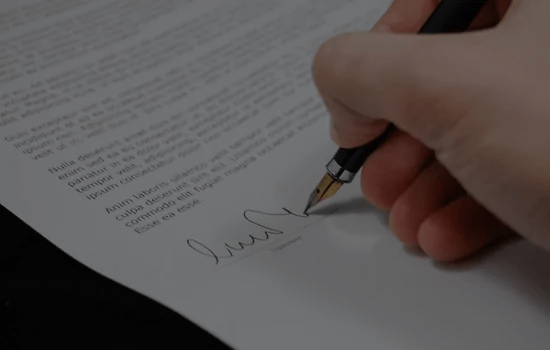In the United States, court summonses are typically delivered through a process known as service of process. Service of process involves delivering legal documents, such as a court summons, to the person being sued or to a representative authorized to receive such documents on their behalf.
Proper service of process is required for a court case to proceed, and failure to properly serve a summons can result in delays or even dismissal of the case.
The rules and procedures for service of process vary by state and jurisdiction, but generally, a process server or other authorized individuals will physically deliver the summons to the recipient. This may occur in person or by leaving the documents at the recipient’s home or workplace. In some cases, service of process may also be accomplished through certified mail or publication.
What Process Servers Can And Can’t Do.

In order to be considered as being served, the process server must deliver the necessary legal documents to the defendant in a manner that follows the laws and regulations of the state where the service is taking place. Therefore, process servers have certain limitations and responsibilities when it comes to serving legal documents.
What Process Servers Can Do
- Deliver legal documents: Process servers are responsible for delivering legal documents, such as summonses, subpoenas, and complaints, to the intended recipients. They are allowed to hand-deliver these documents to individuals or entities at their homes, workplaces, or other locations where they can be found.
- Attempt service multiple times: Process servers may make multiple attempts to serve the documents if the recipient is not available on the first attempt. In some cases, they may also leave the documents with a responsible party or relative.
- Use public records: Process servers are permitted to use public records, such as property records, to locate individuals and serve them with legal documents. They may also conduct investigations to locate individuals who are difficult to find.
- Follow legal procedures: Process servers must follow specific legal procedures when serving documents to ensure that the process is valid. For example, they may be required to serve documents within a certain time frame or provide proof of service to the court.
- Maintain confidentiality: Process servers must maintain confidentiality when serving legal documents. They cannot discuss the nature of the legal case or the documents being served with anyone other than the intended recipient.
- Work with legal professionals: Process servers often work closely with lawyers and other legal professionals to ensure that legal documents are served properly and in a timely manner. They may receive guidance from lawyers on how to locate individuals and serve them with legal documents.
What Process Servers Can’t Do
- Trespassing: Process servers cannot enter private property without permission, break into a home or business, or climb over fences or gates to make a service. They are only allowed to enter a property if the owner or someone with authority allows them to do so.
- Use of Force: Process servers are not allowed to use force or threats to serve papers. This includes physical force, threats of violence or harm, or emotional manipulation to coerce the recipient into accepting the papers.
- Deception: Process servers are not allowed to use deception to serve papers. This means they cannot pose as someone else, lie about their identity, or use false pretenses to gain access to the recipient. They also cannot leave the papers in a place where the recipient is unlikely to find them.
- Harassment: Process servers cannot harass, stalk, or intimidate the recipient. They are not allowed to follow the recipient, repeatedly visit their home or workplace, or engage in any behavior that could be considered intimidating or threatening.
- Violate Privacy: Process servers cannot violate the recipient’s privacy rights. They cannot listen in on private conversations or record interactions without the recipient’s consent.
- Serve to a Minor: Process servers cannot serve papers to minors or anyone who is not legally allowed to accept them.
Why Is Proper Service Of Process Important?
Process servers play a crucial role in ensuring that legal proceedings are carried out in accordance with the law. They have the responsibility of delivering legal documents to individuals who are parties to a legal case. While they have the authority to perform certain tasks to achieve this goal, there are limits to what process servers can and can’t do.
Understanding the scope of a process server’s authority is important for both individuals being served and the process servers themselves, to ensure that the legal process is conducted in a fair and just manner.
Here at Unified Judicial, we strive to make sure our service of process is handled correctly. We strictly abide by each of the New York City Department of Consumer Affairs regulations and the code of ethics of the organizations we are a part of. This is what makes us one of the best process servers in NYC.

FAQs
How long does a process server have to serve papers?
The amount of time a process server has to serve papers varies depending on the state and the type of legal action being pursued. In some states, a process server may have as little as a few days to serve papers, while in others they may have up to a year.
Generally, the time frame for service is dictated by the statute of limitations for the particular legal action being pursued. If the process server is unable to serve the papers within the allotted time, they may request an extension from the court.
What hours can a process server serve you?
In the United States, the hours that a process server can serve legal documents vary by state and jurisdiction. In general, however, process servers are allowed to serve documents at any time of the day, including early morning, late at night, or on weekends. This is because the legal system recognizes that individuals may have different schedules and may not be available during traditional business hours.
However, process servers must still follow state and local laws regarding the specific hours during which they can serve legal documents. In some states, for example, process servers may be prohibited from serving documents on Sundays or on certain holidays.
Can a process server enter a gated community?
In most cases, a process server is allowed to enter a gated community to serve legal documents to the defendant. However, they may be required to follow specific rules or regulations set by the community, such as checking in with security or obtaining permission from the homeowner’s association.
The rules and regulations for serving legal documents in a gated community may vary by state and jurisdiction. As such, it’s essential to consult with an experienced process server or attorney to ensure that all rules and regulations are being followed properly.
About Unified Judicial
Unified Judicial Services is a professional Process Service Agency based in New York City and licensed by the New York City Department of Consumer Affairs.
The company is led and managed by a long-serving member of the legal community with extensive experience in the field.
With our commitment to excellence and acute professionalism, we do our best to provide our clients with truly dependable, affordable, and timely service. Unified Judicial Services has provided consolidated insight to the legal community for many years. We are reinforced, authorized, and guaranteed!
Please contact us today to learn more about our services and how we can help you.